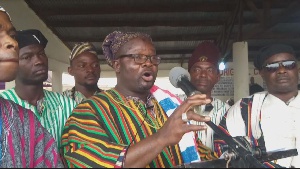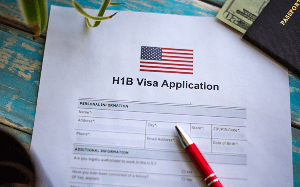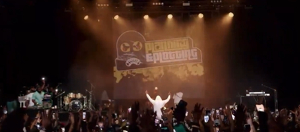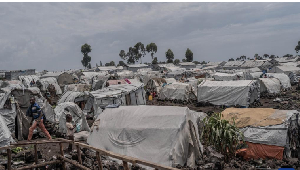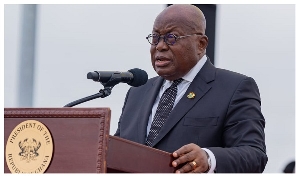Regional News of Sunday, 10 December 2017
Source: starrfmonline.com
Damba reunites Mamprusis, Kusasis in Bawku
This year’s celebration of the Damba festival has passed peacefully in Bawku with the Mamprusis in that part of the Upper East region doing what many did not expect that Saturday.
It was generally anticipated that the Mamprusis, who did not enjoy the liberty to celebrate their Damba almost throughout the eight years the former government was in charge, would at the weekend flaunt a self-proclaimed unlimited air of freedom under a new government by delivering some taunting remarks targeted especially at their old chieftainship rivals— the Kusasis.
But it rather turned out to be an occasion they devoted to offering a warm ceasefire handshake to the Kusasis and the other ethnic factions in the area. Mamprusi leaders present at the festival celebration reminded natives and residents of Bawku that tunes of peace would always be easier on the ear than songs of war.
“We know it takes two to tangle. We on our side have always promised to be peaceful. We have never intended to destroy Bawku. I, therefore, use this opportunity to call all and sundry to give peace a chance in Bawku here. We stretch a hand of invitation to our uncles— the Bisas, the Kusasis, the Hausas, the Dagombas— to also come and embrace the peace that we, the Mamprusis, have in Bawku,” said Tahiru Mohammed Nambe, a legal practitioner and member of the Bawku Inter-Ethnic Peace Committee, as a massive crowd endorsed his speech with applause.
The peak of a reinstated Kusasi-Mamprusi chieftaincy-related clash between 2007 and 2012 saw 182 people including children killed in cold blood either in their homes or at unlikely spots, many houses set on fire, several residents inspired to permanently relocate, families in toiletless houses excreting in polythene bags indoors during long curfew hours and people unhappily peeping through partly opened louvres as stick-to-itive peacekeeping troops patrolled the ghost streets of the once-celebrated commercial nerve centre.
“We all know what happened in Bawku some years ago. We all also know the antecedents of the Damba celebration as it stands now. Nobody can come and impose peace on us as a people of Bawku. We ourselves have to understand the trauma we’ve gone through, the anxiety, the pain that we went through during the period of conflict— you call it war, you call it whatever. We are the very people that can teach ourselves to maintain the peace that we have here,” Mr. Nambe asserted.
Tight Security as Mamprusis seek to eternalise Damba
Saturday’s gathering, a climax of a week-long lineup of Damba activities, took place at Natinga, a Mamprusi-dominated area of Bawku.
Soldiers and police officers, led by their commanders, held the town tight with tireless patrols. A resounding noise engulfed the atmosphere all day as several groups of energetic men, hanging talking drums on their shoulders, struck their hides with power.
Tunes from handmade wind and string instruments, played alongside maracas (dried gourds with woven beads) whilst traditional praise singers electrified the crowd amid torrential drumming, drew scores of smock-parading men who in a queue dramatically swirled their loose-fitting garments repetitively to the music. Also glued to the spotlight were horsemen who, together with decorated horses, made a dance move to every rhythm. And as dancers took the large floor, tons of red cedi notes flew everywhere from the hands of excited individuals some of whom came from within Bawku and from as far as Burkina Faso and Togo to witness a ceremony which also saw snake charmers and mock fetish priests thrill spectators.
“Damba has come to stay,” an overjoyed Lawyer Nambe declared as cheers mounted from an emotional crowd. “Whether we like it or we do not like it, Damba has come to stay. I urge that from today onwards, let’s start planning towards future Damba [as to what] next year is going to look like. And we pray that at that time there would be peace as there is peace now and we can do it in a gargantuan way. Let the world know that Mamprusis are peace-loving people everywhere!”
Why Damba is widespread in the North
Damba, according to one of the Mamprusi opinion leaders who addressed the gathering, Bashiru Salifu, is celebrated to foster unity, to seek development and to promote the culture of the descendants of Naa Gbewaa, a warrior king who lived centuries ago.
“It is celebrated in the traditional lunar month of Damba. In Mamprugu, the month of Damba stands prominent among the twelve moons or months of the traditional calendar. This, therefore, emphasises the need for the celebration by all the descendants of Naa Gbewaa. They are the Mamprusis, Dagombas, Nanumbas and the Walas.
“There are other descendants like the Talensis and Builsas who do not celebrate Damba. However, there are other non-descendants like the Gonjas who adopted Damba and celebrate it annually. This and many other reasons account for the prominence of Damba in the whole of northern Ghana and even beyond. There is a living folktale that tells us about the good rapport that existed between the Mamprusi King, the Nayiri, and the Gonja King, Yagbon Wura of Gonjaland. The mutual relationship still manifests by the recent visit of the Yagbon Wura to the Nayiri’s Palace in Nalerigu,” said Mr. Salifu.
Conviction versus Justification
Many Mamprusis hold a strong conviction that the restriction imposed on Damba celebration in times past in Bawku was politically motivated despite explanations given by the National Security Council (NSC) that the measure was taken for security reasons.
“The other years, they prevented us from doing it. Just because of politics. Maybe they think we are not in support of their party; so, they prevented us from doing it. We don’t think it’s our party but we think that the NPP (New Patriotic Party) don’t discriminate. They allow everybody to do [their] festival [freely] and peacefully. That’s one thing about the NPP that we like.
“But the NDC (National Democratic Congress) prevented us from doing 2 or 3 Damba festival. In 2011 we woke up and saw military that nobody should wear smocks, that we shouldn’t even attempt to celebrate the Damba. But they allowed other ethnic groups— the Bisas, the Mossis and the Kusasis. We don’t want the NPP to stop the Kusasis from celebrating their Samanpiid festival because we want peace in Bawku. We don’t want to spoil Bawku. We don’t want to stop other people from celebrating their festivals,” Yahaya Mohammed Nambe, a Mamprusi young man, told Starr News as the ceremony formally came to a close and an all-night merrymaking was about to begin everywhere at Natinga.

